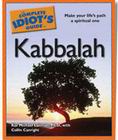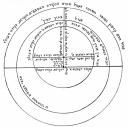
Following are some quotes of prominent Kabbalists to help inspire you during your day or before you go to sleep. Read them one at a time, then contemplate. There is no rush; these quotes work best when you think about them for a while.
“All of man’s engagements are guided by a single, intrinsic premise, and the internality dresses within all people. It is what they referred to as “Nature,” whose numeric count is the same as Elokim (God). And this is the truth that the Creator concealed from the philosophers.”
—Rabbi Moshe Chaim Lutzato (The Ramchal) (1707—1747), The Book of the War of Moses
“Man’s future will indeed come, in which he will evolve to such a sound spiritual state, that not only will every profession not hide another, but every science and every sentiment will reflect the entire scientific sea and the entire emotional depth, as this matter really is in the actual reality.”
—Rabbi Abraham Yitzhak HaCohen Kook (1865—1935), Orot Kodesh, A (Holy Lights, A)
“One who feels within, after several attempts, that one’s soul within is in peace only when engaging in the secrets of Torah, should know for certain that this is what one has been made for. Let no preventions—corporeal or spiritual—stop one from running to the source of one’s life and true wholeness.”
—Rabbi Abraham Yitzhak HaCohen Kook (1865—1935), Orot Kodesh, A (Holy Lights, A)
“The Torah was given to learn and to teach so that all will know the Lord, from least to greatest. We also find many books of Kabbalists alerting of the importance of the study of the wisdom that everyone must learn.”
—Rabbi Yitzhak Ben Tzvi Ashkenazi (???—1807), The Purity of Sanctity
“Indeed, if we set our hearts to answer but one very famous question, I am certain that all these questions and doubts will vanish from the horizon, and you will look unto their place to find them gone. This indignant question is a question that the whole world asks, namely, ‘What is the meaning of my life?'”
—Rabbi Yehuda Leib HaLevi Ashlag (Baal HaSulam) (1884—1954), The Study of the Ten Sefirot
“Even when one does not have the vessels, when one engages in this wisdom, mentioning the names of the Lights and the vessels related to one’s soul, they immediately shine upon us to a certain measure. However, they shine for him without clothing the interior of his soul for lack of the able vessels to receive them. Despite that, the illumination one receives time after time during the engagement draws upon one grace from above, imparting one with abundance of sanctity and purity, which bring one much closer to reaching perfection.”
—Rabbi Yehuda Leib HaLevi Ashlag (Baal HaSulam) (1884—1954), The Study of the Ten Sefirot
pp. 193-4, part “Kabbalah and Your Life,” chapter “Correction Is a Matter of Intention” in The Complete Idiot’s Guide to Kabbalah by Rav Michael Laitman, PhD with Collin Canright.
Click Here to Sign Up for a Free Kabbalah Introductory Course – Starts Soon!




